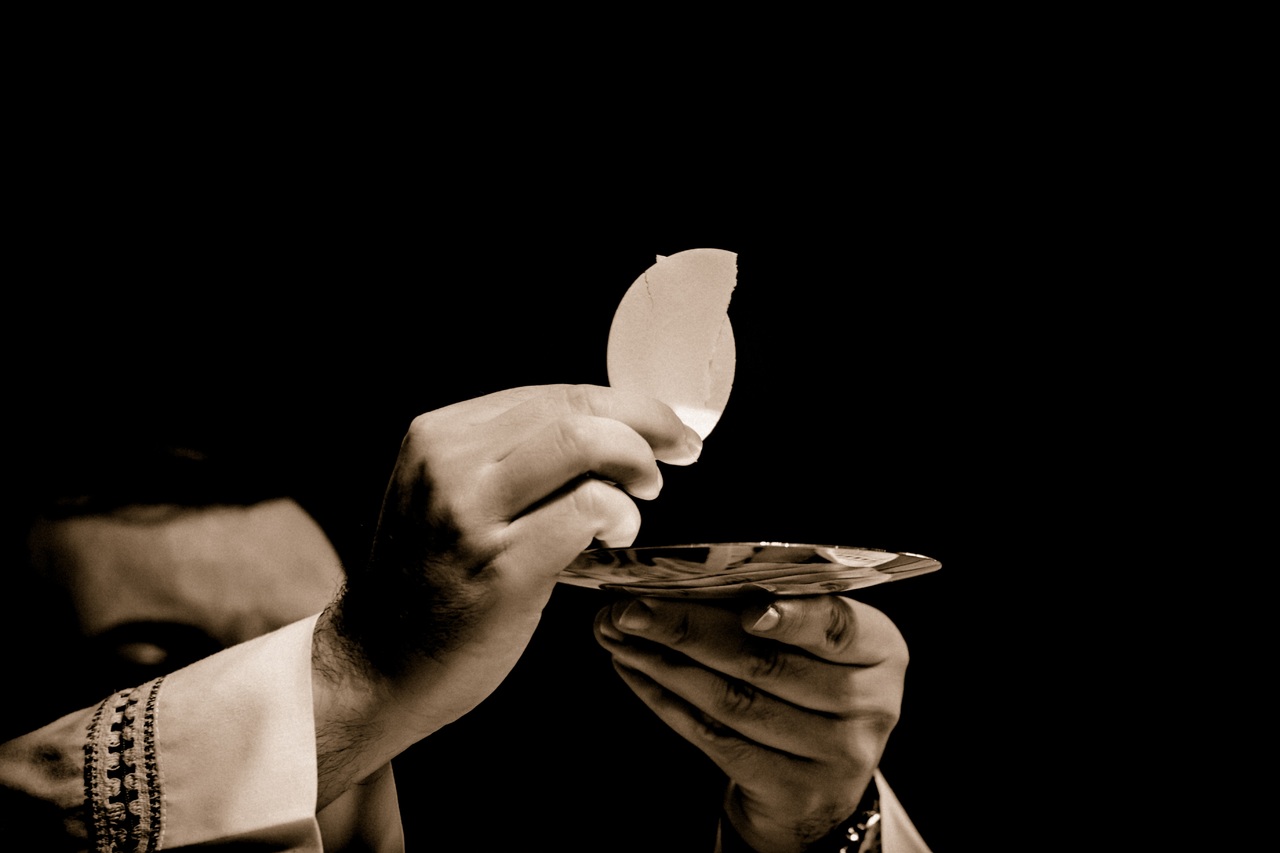The “divorced and remarried” must be refused Holy Communion – their consciences do not bind that of their Pastor
21 October 2015

“But he that shall scandalise one of these little ones that believe in me, it were better for him that a millstone should be hanged about his neck, and that he should be drowned in the depth of the sea.” (Matthew 18:6)
On October 17, 2015, during a media scrum conducted in the midst of the Synod on the Family, Chicago Archbishop Blaise Cupich, a Synod participant appointed by Pope Francis, affirmed that “conscience is inviolable” and suggested that Holy Communion, when requested “in good conscience”, should be given to divorced and remarried couples and even homosexual ones.
Pastors who lend a sympathetic ear to statements such as these tend to emphasize the correct and traditional teaching that even an erring conscience is inviolable and must be followed. But the duty to follow conscience is not the whole story. As this article will seek to make clear, beyond the simple duty to follow one’s conscience, there is a duty to form one’s conscience. And beyond that, there also exists the pastor’s grave duty to protect his flock from scandal and sacrilege.
What is conscience?
To understand the role of conscience and its limits, it is first important to understand what conscience is. The Catechism of the Catholic Church (CCC, section 1778) defines conscience as “a judgment of reason whereby the human person recognizes the moral quality of a concrete act …” Conscience is therefore a reasoned moral judgment that a person makes here and now, e.g. “Assaulting this innocent person is wrong.” Furthermore, the Catechism states that the judgement of conscience binds the person whose judgement it is: “In all he says and does, man is obliged to follow faithfully what he knows to be just and right.”
The duty to form one’s conscience
The duty to follow one’s conscience does not, however, dispense from one’s responsibility to form one’s conscience. Even if every human being has the natural moral law “written in their hearts” (Romans 2:15) – each having a habitual knowledge of the first principles of moral actions – everyone has a duty to form their conscience by being educated further in moral principles. The CCC therefore states:
Conscience must be informed and moral judgment enlightened. The education of conscience is indispensable for human beings who are subjected to negative influences and tempted by sin to prefer their own judgment and to reject authoritative teachings.
Original sin has darkened our minds and weakened our wills and thus “one must therefore work to correct the errors of moral conscience.” (CCC 1793)
At this point it is appropriate to draw attention to the responsibility every pastor has of helping Catholics to form their conscience. If a “divorced and remarried Catholic” erroneously considers that they should receive Holy Communion a pastor should share the teachings of the Catholic Church with them in a clear and charitable way. After all, were he to fail to inform them of their erroneous judgment, he would be confirming them in their error.
A perceived duty to ask for Holy Communion does not cancel out another – opposing – duty to refuse the sacrament
Let us now return to the case which prompted this reflection: the divorced and remarried couple who, “in conscience”, approach their pastor for Holy Communion. Even if it is affirmed that they request Communion “in good conscience”, it does not follow that their pastor, in order to respect the consciences of the couple – and pending the future formation of their mistaken consciences – must here and now admit them to Holy Communion.
A pastor is bound to obey no-one’s conscience but his own. The couple have obeyed their conscience by requesting communion; it is now time for the pastor to obey his own conscience by denying them Holy Communion, for the sake of avoiding the danger of scandal and sacrilege.
Giving communion to public sinners poses a grave danger of scandal and sacrilege
Let us recall that the the “divorced and remarried” couple is in a public state of mortal sin and that receiving communion in a state of mortal sin is an act of sacrilege which harms rather than helps the communicant (c.f. 1 Corinthians 11:29). And even if we were to assume that the couple have arrived, through no fault of their own, at the judgment that they should receive communion, they are, objectively, committing a public act which, by all outside indications, constitutes sacrilege. There is here a serious danger of scandalising those who witness it, particularly the young.
If, then, public sinners are to follow their erroneous conscience and ask for Holy Communion, it is right and, of great importance, that a pastor refuse to give it to them, thereby showing concern for their souls, and for all the members of the flock, particularly the young and impressionable among them.
But he that shall scandalise one of these little ones that believe in me, it were better for him that a millstone should be hanged about his neck, and that he should be drowned in the depth of the sea. (Matthew 18:6)
